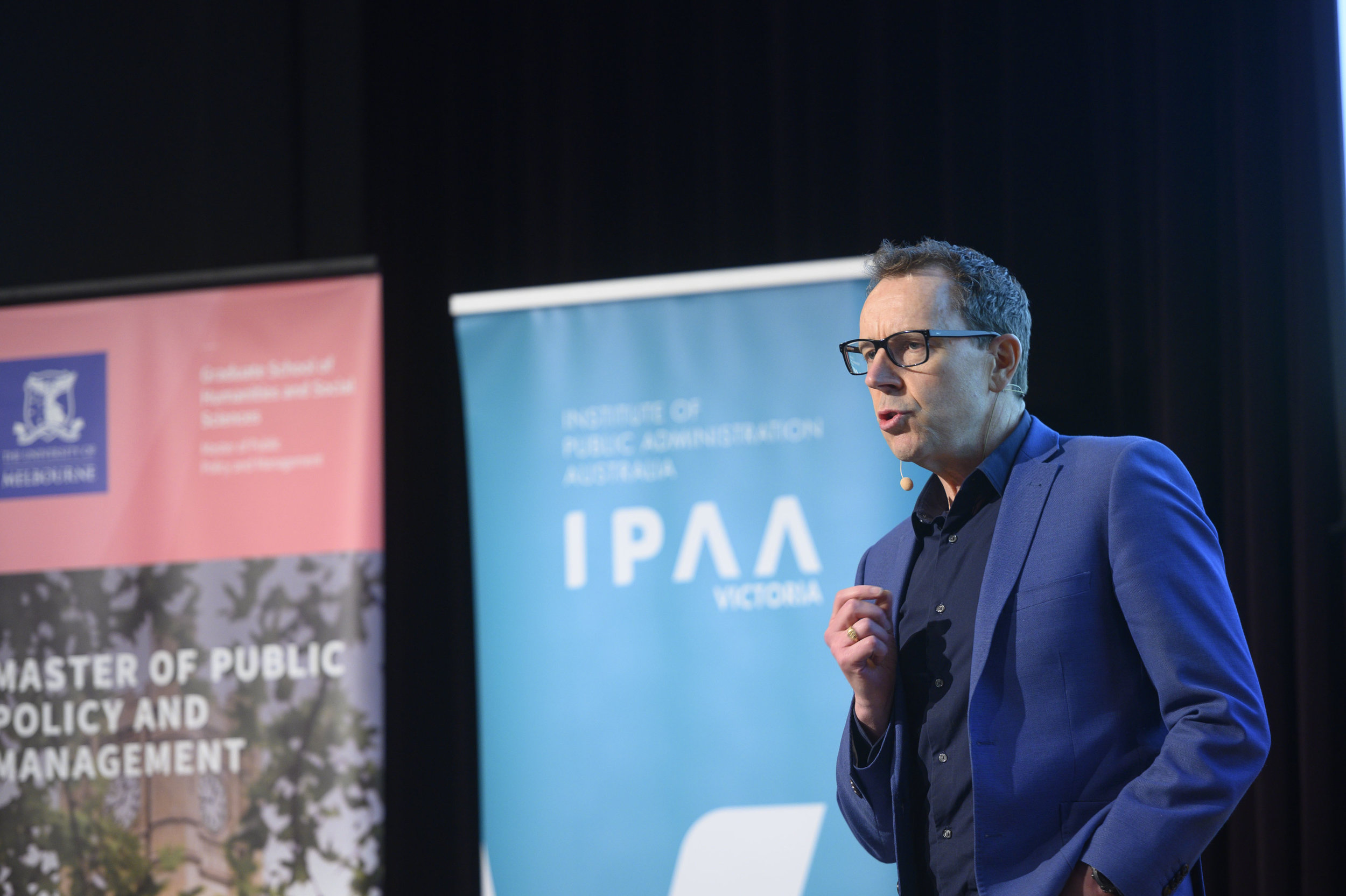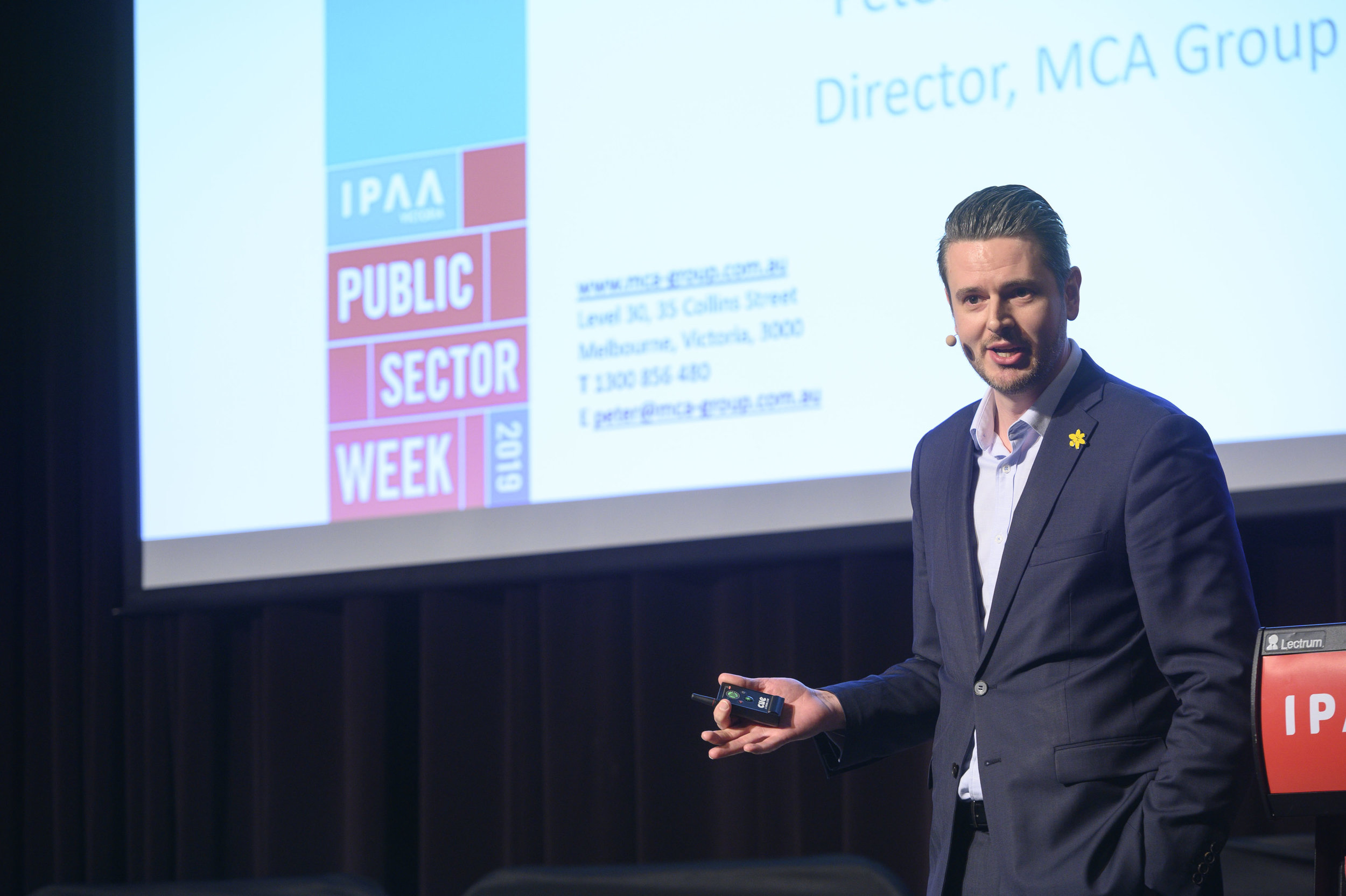
What Does a High-Performing Leader Look Like in 2030?
As public sector professionals, we are there to serve the people, enhance our collective wellbeing and drive our suburbs, cities, towns and regions forward for the betterment of our world. In many respects, this makes us all leaders, regardless of our specific job title or grade. It is incumbent on all of us to stop and reflect on what leadership means for us in our day to day work to ensure we can be real change makers in this ever changing global environment.
Leadership, management and societal change were certainly in focus at the IPAA Victoria high-performing leadership session in August, where a diverse group of presenters led the charge to stimulate important conversations about organisational culture and change, responsibilities of leaders, how relationships and authentic leadership can influence trust, and what people need to be a high-performing leader into the future.
An extensive panel of inspiring speakers drew on their diverse backgrounds across the public and private sectors, sharing stories and experiences with over 200 delegates from an extensive range of government departments, agencies and organisations
The speakers shared their thoughts on essential attributes for success, including the importance of self-awareness in relation to our individual and collective capabilities. This included former Chief Executive Officer of the Richmond Football Club, Cameron Schwab, who spoke of his experiences leading the elite sporting club from the age of just 24. He described how, in his experience, people don’t necessarily rise to the level of their ambitions, but instead fall to the level of their capabilities. As such, it is imperative for all of us to invest in our own leadership capabilities to ensure we can be as influential and successful as possible in our work.
Relationships and looking after one another were also highlighted as crucially important to achieve great things in the public sector, and across society more broadly. Schwab described how hard it was for “a free fish to understand what is happening to a hooked one”. Being able to truly appreciate others’ perspectives and show care for our colleagues, friends, family and managers in hard times all helps to build trust, and through trust, respect is born.
The importance of respect and strong relationships were also echoed by Peter Andrewartha, Director at the MCA Group. Andrewartha spoke about human behaviour and one of the most basic human needs, which is the need to be understood. He reflected on his years of experience as a psychologist and the importance of influential communication, which in many cases is about listening just as much as talking.
Many of the other speakers compared and contrasted management and leadership, and reflected on strategic thinking, positive mindsets and what it means to be an authentic leader. Whilst being able to drive change is important, all speakers agreed we must be able to delegate, support and empower our staff, colleagues and communities in order to truly realise our collective vision for a better Victoria. Despite our best intentions, no public servant will be able to ‘captain the team’, ‘coach the squad’ and attain ‘best on ground’ status.
At the conclusion of the session, delegates felt empowered with an armoury of practical ideas to implement each and every day. It is clear that we must be true to ourselves by working out what we stand for and ensure that this is reflected in how we walk and talk. If we all take the time to self-reflect, improve ourselves and put others’ needs above our own by investing in our workplace relationships, we will truly enhance the way in which we deliver for our communities.





